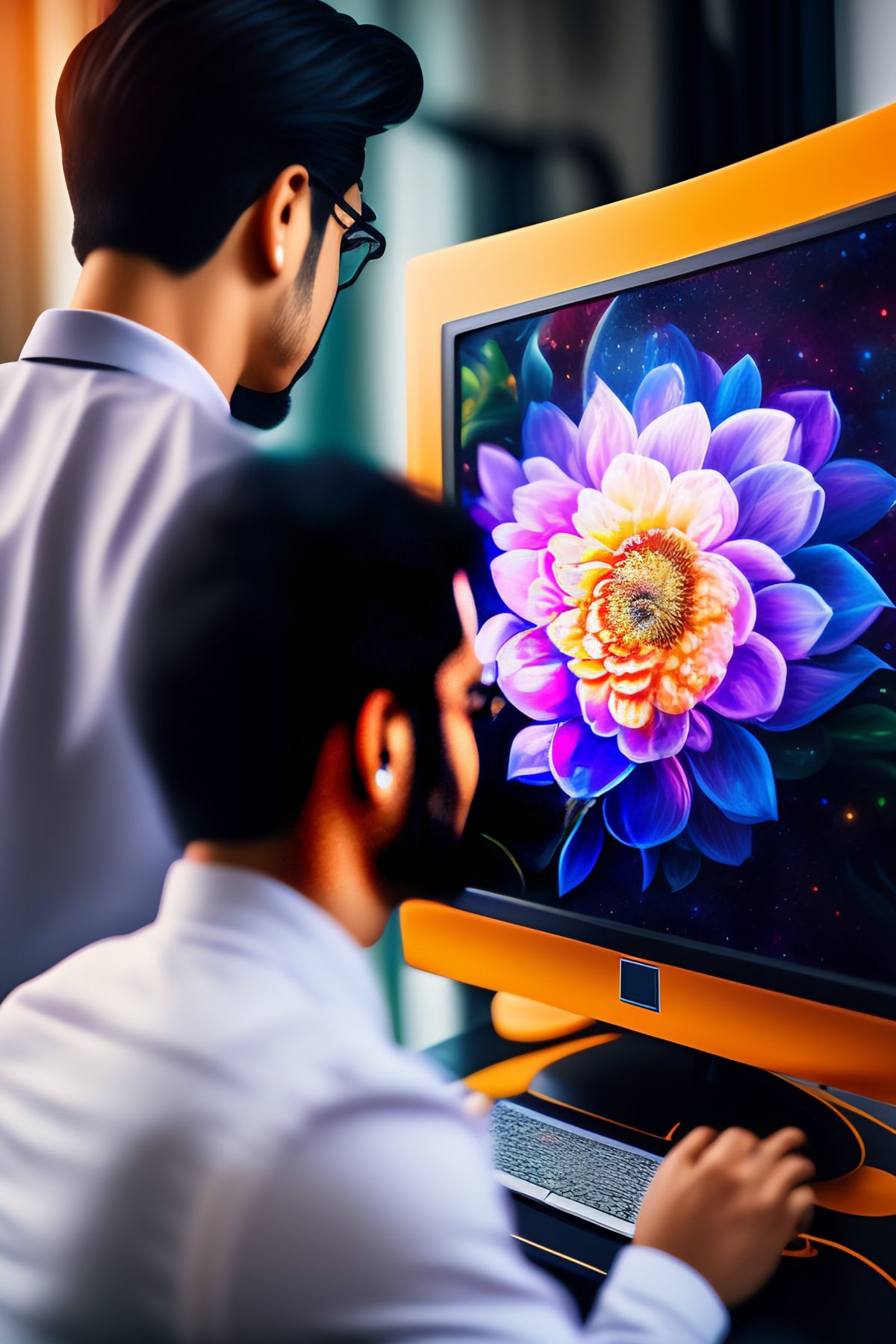Technology in India: A Fascinating Journey
As we delve into the historical development and current state of technology in India, it becomes evident that the nation's commitment to technological advancements has paved the way for a brighter future.

Overview
Introduction to Technology in India
India's journey in the field of technology has been nothing short of remarkable. From humble beginnings to becoming a global tech powerhouse, the country has experienced a transformative journey. Over the years, India has embraced technological advancements and leveraged them to drive innovation, economic growth, and societal development. The integration of technology in various sectors has revolutionized the way things are done and opened up new possibilities for progress. As we delve into the historical development and current state of technology in India, it becomes evident that the nation's commitment to technological advancements has paved the way for a brighter future.
Historical Development of Technology in India
As I delve into the historical development of technology in India, it is fascinating to see how the country has embraced innovation and overcome challenges. From ancient times, India has been a hub of knowledge and scientific discoveries. The laws of physics were explored and understood by Indian scholars, paving the way for advancements in various fields. The invention of zero and the decimal system are prime examples of India's contributions to mathematics. Additionally, ancient Indian texts like the Vedas and the Arthashastra contain references to sophisticated technologies and engineering principles. These early developments laid the foundation for the technological progress we see in India today.
Current State of Technology in India
As a technology enthusiast, I am fascinated by the current state of technology in India. The country has made significant advancements in various fields, including artificial intelligence, big data, and Internet of Things. One area that particularly stands out is the development of humanoid robots. These robots, designed to resemble and interact with humans, have the potential to revolutionize industries such as healthcare, hospitality, and customer service. The use of humanoid robots in India is an exciting example of how technology is shaping the future and enhancing human experiences.
Impact on Economy

Role of Technology in India's Economic Growth
As a digital transformation specialist, I have witnessed firsthand the immense impact of technology on India's economic growth. The integration of technology in various sectors has revolutionized the way businesses operate and has opened up new avenues for innovation and expansion. One of the key drivers of economic growth in India has been the rise of e-commerce platforms, which have transformed the retail landscape and provided opportunities for small businesses to reach a wider audience. Additionally, the adoption of digital payment systems has facilitated seamless transactions and financial inclusion. However, it is important to acknowledge that with the rapid advancement of technology, there are also challenges that need to be addressed, such as cybersecurity threats and the digital divide. Overall, technology has played a pivotal role in driving India's economic growth and will continue to shape the future of the country's economy.
Technological Innovations Driving Economic Transformation
In recent years, technological innovations have played a pivotal role in driving economic transformation in India. These innovations have revolutionized various sectors, including manufacturing, agriculture, healthcare, and finance. The adoption of advanced technologies such as artificial intelligence, big data analytics, and blockchain has led to increased efficiency, productivity, and competitiveness. These innovations have also facilitated the growth of e-commerce, digital payments, and online services, creating new opportunities for businesses and consumers alike. As India continues to embrace technological advancements, it is poised to further accelerate its economic growth and position itself as a global leader in the digital age.
Challenges and Opportunities for Technology-driven Economic Development
As I delve into the challenges and opportunities for technology-driven economic development in India, one area that stands out is the potential of leveraging technology to address the issue of night. With the rapid advancement of technology, there is an opportunity to develop innovative solutions that can enhance safety and security during the night hours. This can have a significant impact on various sectors such as transportation, tourism, and public safety. By harnessing the power of technology, India can create a safer and more vibrant environment during the night, unlocking new economic opportunities.
Education and Skill Development

Integration of Technology in Education
To reach a new decade that will shape the future of an entire generation, it is essential for me, as an educator, to embrace the opportunities presented by technology in education. With the advancements in technology, automation, and globalization, the future of learning and education is undergoing a transformation. As an educator, I must prepare myself for this new era and equip students with the necessary skills to thrive in a technology-driven world. Some of the notable learning differences among students include innovative and independent thinking, problem-solving, soft skills, and low levels of technical and vocational training. By integrating technology into education, we can address these gaps and provide students with a well-rounded education that prepares them for the challenges and opportunities of the future.
Digital Learning Platforms and Tools
As a proponent of technology-driven education, I am fascinated by the impact of digital learning platforms and tools in India. These platforms and tools have revolutionized the way education is delivered and accessed, breaking down barriers of distance and providing access to quality education for all. With the advent of online courses, students can now learn at their own pace and convenience, expanding their knowledge beyond the traditional classroom. Additionally, these platforms have also opened up new avenues for skill development and upskilling, empowering individuals to acquire new skills and stay relevant in the digital age. The availability of online resources and interactive learning tools has made learning more engaging and interactive, enhancing the overall learning experience. By leveraging these digital platforms and tools, India is paving the way for a future where education is accessible to all, transforming the landscape of learning and empowering individuals to thrive in the digital era.
Upskilling and Reskilling for the Digital Age
In the digital age, upskilling and reskilling have become essential for individuals to thrive in a rapidly evolving technological landscape. As technology continues to advance at an unprecedented pace, it is crucial for professionals to continuously update their skills and knowledge to stay relevant. The future of work will be heavily influenced by future technology such as artificial intelligence, automation, and data analytics. To prepare for this future, individuals need to embrace lifelong learning and seek opportunities to acquire new skills. Digital learning platforms and tools play a vital role in providing accessible and flexible learning options. Additionally, governments and organizations must invest in initiatives that promote upskilling and reskilling programs to ensure a skilled workforce for the digital era. By investing in continuous learning and adapting to emerging technologies, individuals can seize the opportunities presented by the digital age and contribute to India's technological growth.
Conclusion
Achievements and Future Prospects of Technology in India
As an observer of the technology landscape in India, it is evident that the advancements made in recent years have significantly contributed to the country's growth. One of the remarkable achievements is the business growth that has been fueled by technology. The integration of digital platforms and tools has revolutionized various sectors, enabling businesses to expand their reach and tap into new markets. This has resulted in increased productivity, improved efficiency, and enhanced competitiveness. Looking ahead, the future prospects of technology in India are promising. With continued investment in research and development, the country has the potential to become a global leader in innovation and technology-driven solutions. However, it is crucial for the government and the private sector to collaborate and create an enabling environment that fosters innovation, entrepreneurship, and the adoption of new technologies.
Importance of Continued Investment in Technological Advancements
As a technology enthusiast, I strongly believe that continued investment in technological advancements is crucial for the progress of India. The rapid pace of innovation and the emergence of new technologies are reshaping industries and transforming the way we live and work. By investing in research and development, fostering innovation ecosystems, and promoting collaboration between the government and the private sector, India can position itself as a global leader in technology. This will not only drive economic growth but also create new opportunities for employment and improve the overall quality of life. It is essential for India to embrace and adapt to the changes brought about by technology in order to stay competitive in the global landscape.
The Role of Government and Private Sector in Shaping India's Technological Landscape
As the world becomes increasingly interconnected through technology, the role of the government and private sector in shaping India's technological landscape has never been more crucial. The government plays a key role in creating policies and regulations that support the growth and development of the technology sector. It provides incentives and funding for research and development, as well as infrastructure development. Additionally, the private sector plays a vital role in driving innovation and investment in technology. Through collaborations with startups, corporations, and academic institutions, the private sector contributes to the creation of new technologies and solutions that address the needs of society and the economy. Together, the government and private sector work hand in hand to foster a conducive environment for technological advancements and ensure that India remains at the forefront of the global technology landscape.
In conclusion, Bookspotz is the ultimate destination for independent creative AI enthusiasts. With a wide range of articles, insights, and resources, Bookspotz aims to provide a platform for AI enthusiasts to explore, learn, and connect. Whether you are a beginner or an expert, Bookspotz offers valuable content that will enhance your understanding of AI and its applications. Join the Bookspotz community today and embark on a journey of discovery and innovation.




